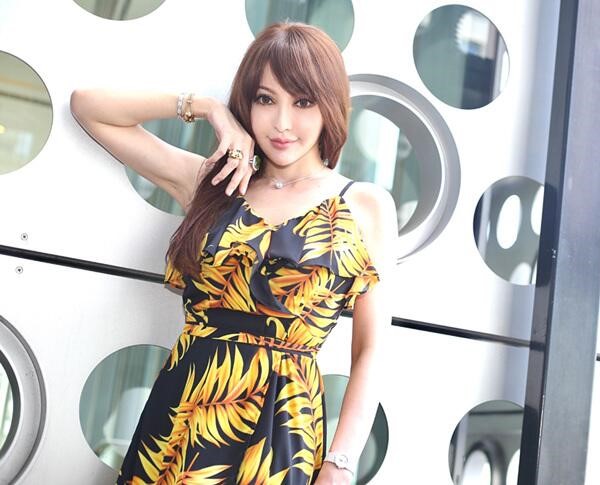Taiwan entertainer sees bright future for mainland
- By Zhang Rui
 0 Comment(s)
0 Comment(s) Print
Print E-mail China.org.cn, July 16, 2021
E-mail China.org.cn, July 16, 2021
Taiwan entrepreneur and entertainer Alina Hsu has many fond memories of her time living and working on the Chinese mainland. In her eyes, the Communist Party of China (CPC) has led the people onto a path to prosperity.

Speaking from Taiwan, Hsu told China.org.cn that she had been there since February 2020. "I feel very lonely as I can't visit my friends around the world (because of COVID-19). But as a celebrity, I should honor my public responsibility and be a role model by reducing my social activities."
She appreciated the mainland's anti-pandemic measures a lot: "Many of my friends on the Chinese mainland are already back to living normal lives. The mainland has highly effective and efficient policies, and a high vaccination rate."
The mainland's triumph against COVID-19 is another example of the CPC's greatness. "As I see it, the CPC can push policies efficiently and is the ruling party that can lead the people to prosperity following the last century's turbulence and poverty. I hope the mainland continues to have great development in the future."
Hsu has earned several titles, including Miss Asia Pacific at the 2009 Miss European Tourism Queen pageant and Miss Personality at the World Bikini Model Queen the same year. She shot to stardom on the popular Taiwan talk show "Kangsi Coming" in 2010, and was selected as one of the 100 Sexiest Women in the Taiwan edition of lifestyle magazine FHM in 2011 and 2012.
After relocating to Hong Kong in 2012 where she worked as a host on China Entertainment Television (CETV), Hsu started to learn more about the Chinese mainland. In 2014, she was invited to be a judge on "Miss Star," a beauty pageant show produced by Hunan TV, becoming the first Taiwan celebrity to judge three episodes.
But the TV celebrity decided to quit the world of showbiz sooner than expected. "I think it was the best time for me to walk away when I was on top. Fans still remember my most beautiful moments so many years on," she said smiling.
In 2015, she opted to move into business. Hsu invested in and learned to run a chain of milk tea drink stores called "Tea & Brown," a Taiwan startup on the mainland and headquartered in Chengdu, Sichuan province since 2005, which was in decline before she became an executive director.
"I have so many good memories of my time on the Chinese mainland — the people, flexible investment business and delicious food," she said. "I've met many top mainland entrepreneurs and become friends with them. They gave me lots of good advice and ideas, which prompted me to get involved in 'Tea & Brown' and turn the business into a success."
But just like with her showbiz career, Hsu sold her shares in "Tea & Brown" in 2018, when the chain had grown to 200 stores, reaching as far as Tibet and bringing in an annual gross revenue of more than 100 million yuan.
Although confined at home for most of the pandemic, Hsu plans to continue doing business on the mainland. "The mainland is no longer an OEM (Original Equipment Manufacturer) economy, but rather it has its own brands as well as full production, operation and distribution lines. I feel the prospects of the mainland are still promising, and the investment environment is very flexible and convenient, which are very attractive to me."
She believes Taiwan people are strong on creativity and product designs but lack the mechanism to turn them into businesses. "The business model on the mainland can bring many opportunities for Taiwan," she said. "The two sides should work together."
Hsu is also a charity activist and has participated in campaigns to advocate using fewer plastic bags and adopting animals rather than buying them since 2014. She has also worked with entrepreneurs on the mainland over the years to donate much-needed supplies for underprivileged children in remote rural areas.
Hsu calls herself a "pacifist," adding that Taiwan politicians too often bring political confrontation into people's minds. "Love is the only thing that needs to be mentioned from time to time, isn't it?"






Go to Forum >>0 Comment(s)